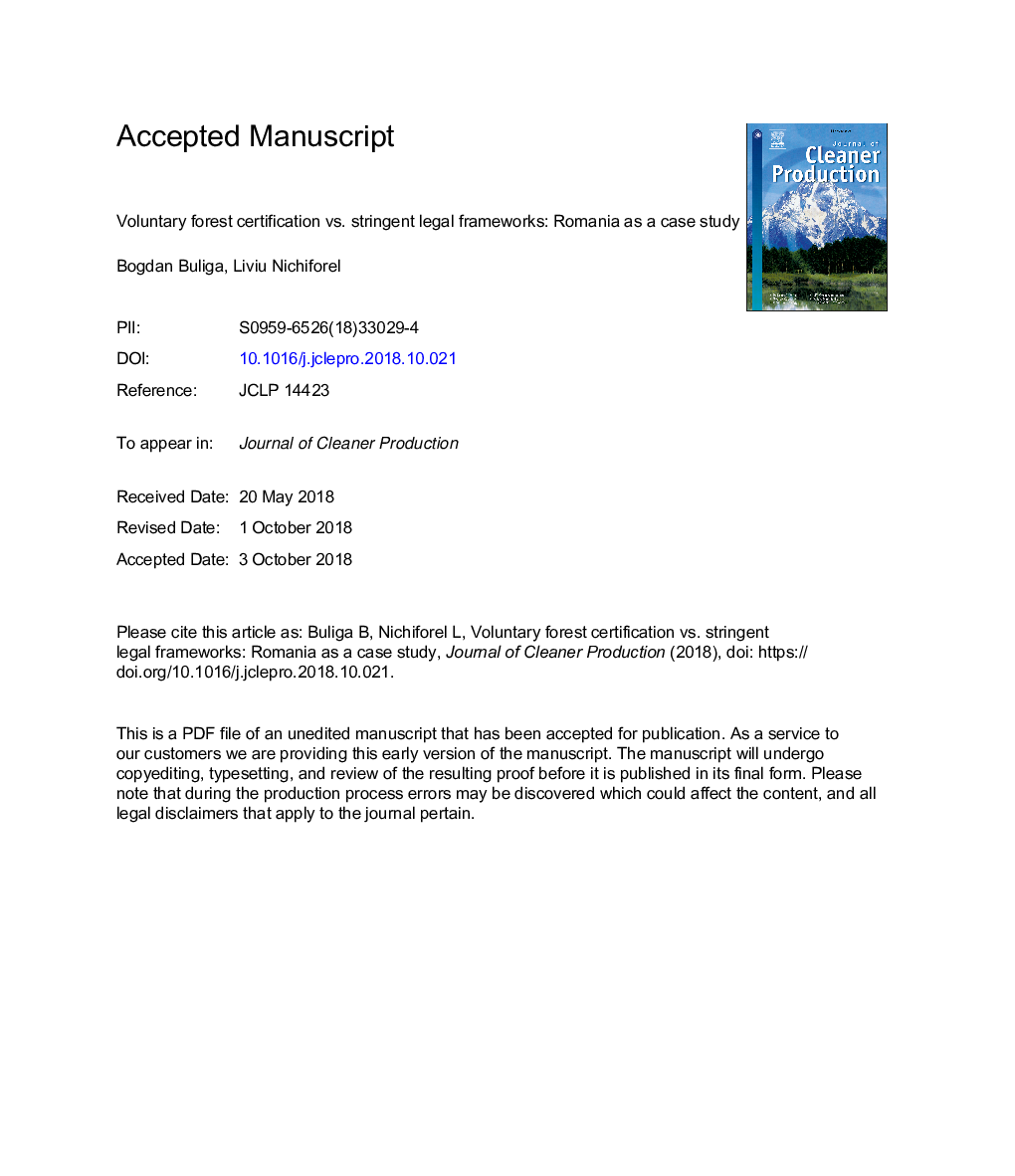| کد مقاله | کد نشریه | سال انتشار | مقاله انگلیسی | نسخه تمام متن |
|---|---|---|---|---|
| 11011081 | 1803333 | 2019 | 29 صفحه PDF | دانلود رایگان |
عنوان انگلیسی مقاله ISI
Voluntary forest certification vs. stringent legal frameworks: Romania as a case study
ترجمه فارسی عنوان
گواهینامه داوطلبانه جنگل در مقابل چارچوب قانونی سختگیرانه: رومانی به عنوان نمونه موردی
دانلود مقاله + سفارش ترجمه
دانلود مقاله ISI انگلیسی
رایگان برای ایرانیان
کلمات کلیدی
حکومت پایدار، چارچوب حقوقی، گواهینامه جنگل، مسئولیت اجتماعی شرکت، مدیریت زنجیره تامین،
موضوعات مرتبط
مهندسی و علوم پایه
مهندسی انرژی
انرژی های تجدید پذیر، توسعه پایدار و محیط زیست
چکیده انگلیسی
Sustainable forest biomass production is receiving particular attention in bioeconomy policies. This results in an intensified pressure on the companies in the forest-based industry to improve their social and environmental management practices. To address this issue, country-specific governance frameworks are used; these frameworks involve a mix of mandatory or voluntary, public or private regulatory systems. A stringent legal system puts a strong emphasis on command and control instruments, a situation common to many of the post-socialist countries in Europe. As a response to insufficient governmental activities, private-market-based instruments, such as certification standards, are employed to demonstrate the sustainability of timber biomass-based supply chains. This trend is also visible in Romania, where despite the stringent legal framework, a large number of owners and companies have opted for voluntary certification. We evaluated how much of the Forest Stewardship Council (FSC®) standard used for forest management certification is contingent on legal rules, and we concluded that 69% of the standard requirements are de jure addressed. We also evaluated, from a legal perspective, the non-conformities identified between 2008 and 2017 in the 108 FSC audit reports. We document that de facto, the implementation of the legal system faces essential enforcement problems since 54% of the identified non-conformities represent a violation of laws. The three main non-compliances with the legal requirements are related to harvesting operations, a key activity to be addressed in supply chain management. Hence, the empirical evidences of this research highlight that the Romanian exhaustive legal frameworks with no flexibility in terms of compliance coupled with the governmental enforcement failures create a risky business environment for the companies operating in the forest industry.
ناشر
Database: Elsevier - ScienceDirect (ساینس دایرکت)
Journal: Journal of Cleaner Production - Volume 207, 10 January 2019, Pages 329-342
Journal: Journal of Cleaner Production - Volume 207, 10 January 2019, Pages 329-342
نویسندگان
Bogdan Buliga, Liviu Nichiforel,
